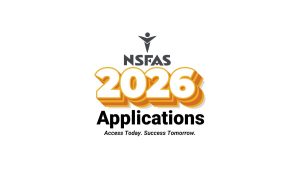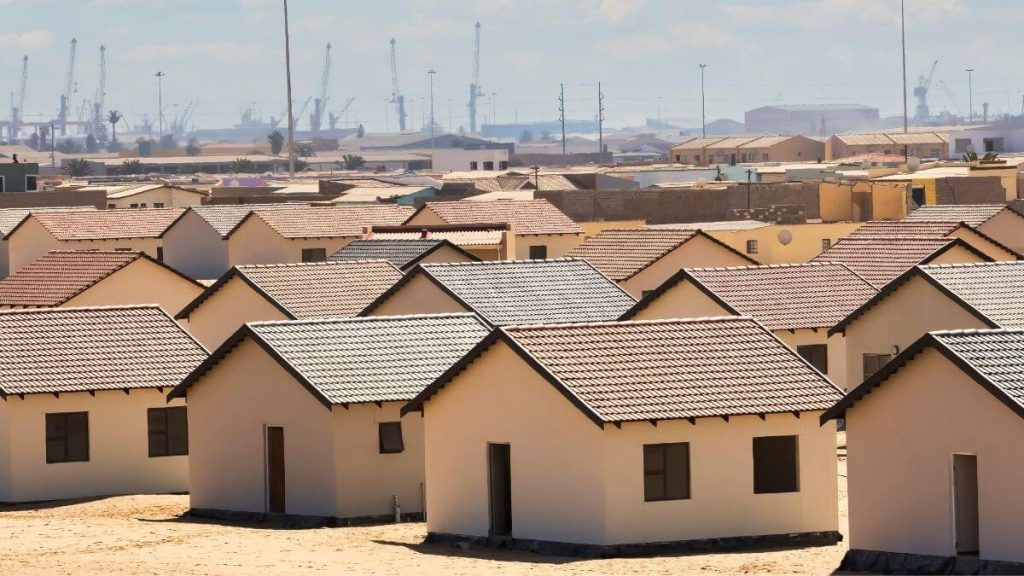Affordable housing remains one of South Africa’s biggest challenges, particularly for families in large metropolitan areas like Tshwane. The Reconstruction and Development Programme (RDP) was introduced to provide dignified homes for citizens who cannot access formal housing markets. If you live in Tshwane and want to apply for an RDP house, you may have faced confusion about where to go, who to contact, and how to ensure your application is complete.
This article is your comprehensive guide to RDP housing applications in Tshwane. You’ll find eligibility criteria, required documents, a complete list of housing offices with addresses and contacts, online and USSD options, and practical tips.
What Is RDP Housing?
The Reconstruction and Development Programme (RDP) was launched in 1994 to address South Africa’s housing backlog. Millions of homes have since been delivered nationwide, providing shelter and stability to low-income households.
In Tshwane, applications are managed by the City of Tshwane Housing and Settlements Department, working alongside the Gauteng Department of Human Settlements. The process is straightforward, but applicants must use official government channels and submit accurate, complete information.
Who Qualifies for an RDP House in Tshwane?
Not everyone qualifies for an RDP house. The programme targets households most in need. To qualify, you must:
Be a South African citizen or permanent resident with a valid South African ID.
Be 21 years or older.
Earn a combined household income below R3,500 per month.
Be married, cohabiting, or single with dependents.
Not own property anywhere in South Africa.
Not have received a government housing subsidy previously.
Be a first-time applicant.
Priority is given to the elderly (60+), people with disabilities, and military veterans.
Documents Required for Your Application
One of the biggest reasons RDP housing applications are delayed or rejected is because applicants submit incomplete or uncertified paperwork. To avoid unnecessary setbacks, make sure you prepare a complete file of supporting documents before visiting your local City of Tshwane housing office or customer care centre.
Here is a detailed breakdown of each required document:
1. Valid South African ID
Who needs it: The main applicant and their spouse (if married).
Why it’s needed: To verify your citizenship or permanent residency status and confirm that you are legally entitled to apply for government housing.
Tips:
Ensure your ID is not expired.
If your ID is lost, apply for a temporary ID from Home Affairs before submitting your application.
2. Birth Certificates of Dependents
Who needs it: All children or dependents who will live in the household.
Why it’s needed: To prove that you have dependents, as priority is often given to families with children.
Tips:
If you don’t have birth certificates for your children, apply at Home Affairs before submitting your RDP form.
Make certified copies of each certificate, including both parents’ names where applicable.
3. Marriage Certificate, Divorce Decree, or Spouse’s Death Certificate
Who needs it: Applicants who are married, divorced, or widowed.
Why it’s needed: To verify your marital status, which affects your eligibility and household income assessment.
Tips:
Married couples must apply together (you cannot apply separately if you are legally married).
If divorced, provide the full divorce decree showing the legal termination of marriage.
If widowed, a death certificate is required to prove your spouse’s passing.
4. Proof of Income
Who needs it: All applicants, whether employed or unemployed.
Why it’s needed: To confirm that your household income is below R3,500 per month, which is the eligibility threshold for RDP houses.
Accepted documents:
Recent salary slip (not older than 3 months).
Bank statement reflecting income.
Sworn affidavit if unemployed.
Tips:
If unemployed, go to your local police station or commissioner of oaths to complete an affidavit declaring zero income.
Couples must provide proof of income for both partners.
5. Proof of Residence
Who needs it: All applicants.
Why it’s needed: To confirm that you live within the Tshwane municipal boundaries and to link your application to the correct housing region.
Accepted documents:
Recent utility bill (water, electricity, rates).
Official letter addressed to you at your current address.
If you are renting or do not have bills in your name, an affidavit signed by the landlord or property owner.
Tips:
Proof of residence must show your current, full address.
If staying with family, an affidavit plus the homeowner’s utility bill is usually required.
6. Disability or Medical Documents (if applicable)
Who needs it: Applicants living with a disability or serious medical condition.
Why it’s needed: To prioritise housing allocation for vulnerable groups. Some RDP houses are designed with special features (such as wheelchair ramps).
Tips:
Obtain an official medical certificate from a recognised healthcare provider.
If registered as disabled, provide your SASSA disability card or supporting letter.
7. Additional Recommended Documents
While not always required, it is advisable to keep the following on hand:
Children’s school registration letters (to show dependents live with you).
SAPS affidavit for missing documents.
Recent photographs for identification (some offices request this).
Certification Rules
All copies must be certified by a commissioner of oaths (at a police station, post office, or municipal office).
Certification must be less than 3 months old.
Always bring original documents in case officials need to verify them.
Where to Submit Your RDP Application in Tshwane
In Tshwane, you can submit your RDP house application at the nearest City of Tshwane customer care centre or housing office. The municipality operates multiple regional offices where applications are accepted with the required documentation.
Here are the official offices and contact details:
Region 1: Mabopane, Soshanguve, Ga-Rankuwa, Akasia
Mabopane Revenue Services Building
Address: 1653 Peter Mogano Street, Mabopane Block X
Tel: 012 358 0787 / 2371 / 4224
Soshanguve Office
Address: Stand 2275, corner Tlhatlhagane & Commissioner Street, Soshanguve
Tel: 012 358 9737 / 2371 / 4224
Ga-Rankuwa Admin Unit Building
Address: 9111 Setlalentoa Street, Zone 5, Ga-Rankuwa
Tel: 012 358 0787 / 2371 / 4224
Akasia Customer Care Building
Address: 16 Dale Street, Karenpark
Tel: 012 358 0787 / 2371 / 4224
Region 2: Sinoville, Temba, Hammanskraal
Sinoville Office
Address: Corner Marija Street & Pafuri Avenue, Sinoville
Temba & Hammanskraal Office
Address: 4424 Unit 2, Molefe Makinta Street, Temba/Hammanskraal
Tel: 012 358 9860 / 0374 / 4023 / 8774
Region 3: Atteridgeville
Address: Corner Komane & Mngadi Street, Atteridgeville
Tel: 012 358 4315 / 8497 / 1124 / 7907
Region 4: Centurion / Lyttelton
Address: Block L, Crystal Park One Complex, 249 Basden Avenue, Lyttelton, Centurion
Tel: 012 358 3888 / 1490 / 1652
Region 5: Refilwe
Address: 2646 Rumo Drive, Refilwe
Tel: 012 358 7029
Region 6: Mamelodi
Address: Mamelodi Mini-Munitoria, corner J Letwaba & Makhubela Street, Mamelodi
Tel: 012 358 5546 / 4780 / 4229
Region 7: Bronkhorstspruit
Tel: 012 358 6889 / 5891 / 6548
Central Inquiries Office – Arcadia
For general inquiries or to confirm where you should submit your application:
Tshwane Department of Human Settlements
Address: Gilboa Building, 50 Hamilton Street, Arcadia
Tel: 012 303 3380 / 3363
Alternative Submission Options
Apart from in-person submissions, Tshwane also offers digital channels:
USSD Platform: Dial 1205757# to access the housing application system on any cellphone.
City of Tshwane e-Services Portal: www.tshwane.gov.za
Gauteng Human Settlements Online Portal: housing.gauteng.gov.za
While digital services improve accessibility, many applicants still need to visit offices for submitting certified documents.
Step-by-Step Application Process
Applying for an RDP house in Tshwane can feel overwhelming if you don’t know where to start. Following a clear process will save you time and reduce the chance of your application being delayed or rejected. Here is a detailed breakdown of each step:
1. Collect and Certify All Required Documents
Before you leave home, make sure you have all the necessary paperwork. Missing documents are the number one cause of rejected applications.
Gather originals (ID, birth certificates, proof of income, proof of residence).
Make certified copies at your local police station, post office, or municipal office.
Certification must be less than 3 months old.
Tip: Create a folder with two sections — one for originals and one for certified copies — so you don’t hand over your original documents by mistake.
2. Visit Your Nearest Customer Care Centre or Housing Office (or Use USSD/Online)
You have several options for submission:
In person: Go to your nearest City of Tshwane customer care centre or housing office. Offices are spread across all seven regions, making it easier to apply close to where you live.
USSD: Dial 1205757# on your cellphone. This option is useful if you want to pre-register your details quickly, but you’ll still need to submit certified documents later.
Online: Use the Gauteng Human Settlements portal or the City of Tshwane’s e-Services platform.
Tip: If you’re unsure which office to use, call the central inquiries office at Gilboa Building, 50 Hamilton Street, Arcadia (Tel: 012 303 3380/3363). They will direct you to the correct office for your region.
3. Request and Complete the Housing Application Form
Once at the office, ask for the housing application form. The form must be filled in carefully and legibly.
Use black ink if filling by hand.
Ensure all personal details (names, ID numbers, addresses) match your supporting documents exactly.
Do not leave blank sections. If something doesn’t apply, write “N/A”.
If you’re unsure about a section, ask the official for guidance before submitting.
Tip: Make a photocopy of the blank form first and practice filling it out. Submit the final version when you are confident it is accurate.
4. Submit the Form With Your Supporting Documents
Hand in your completed form along with the certified copies of your documents. The official will check that everything is attached.
Keep your documents in order (ID copies on top, followed by proof of income, proof of residence, dependents’ certificates, etc.).
If any documents are missing, you’ll be asked to return another day, which delays the process.
Never hand over original documents unless specifically requested for verification.
Tip: Ask the official to stamp your copy of the form or give you a stamped checklist showing what was submitted.
5. Obtain Your Reference Number
Once your application is accepted, you’ll receive a reference number. This is the most important proof that your application is in the system.
Write it down clearly.
Save it on your phone as a note or text.
Keep any printed receipt in a safe place (preferably in your document folder).
Why it matters: Without a reference number, you cannot check your application status later. Losing it may force you to restart the application process.
6. Follow Up and Check Application Status
The process doesn’t end once you submit your application. Stay proactive by checking progress regularly:
At the office: Return with your ID and reference number.
By phone: Call your regional office or the central call centre on 012 358 9999.
Online/USSD: Use the Gauteng Housing portal or dial 1205757#.
Tip: Check every 6–12 months to confirm your application is still active and that your details (marital status, dependents, income) are up to date.
How to Check Your RDP Application Status
In person: Return to your housing office with your ID and reference number.
By phone: Call your regional office or the central inquiries office in Arcadia.
Online: Use the Gauteng Human Settlements portal (https://www.hssonline.gov.za/#/).
USSD: Dial 1205757# to check progress on your cellphone.
Call Centre: Contact Tshwane’s main call centre on 012 358 9999.
Common Mistakes to Avoid
Even though the RDP housing application process is straightforward, many applicants face unnecessary delays or outright rejections because of avoidable errors. Understanding these mistakes in advance can save you time and ensure your application is processed smoothly.
Here are the most common pitfalls to avoid:
1. Submitting Incomplete or Uncertified Documents
Why it’s a problem: If your application is missing even one required document — such as a certified ID copy or proof of residence — officials will not process it. You’ll be asked to return with the missing paperwork, which delays your place in the queue.
Tip to avoid it: Create a checklist of all required documents (ID, dependents’ birth certificates, proof of income, proof of residence, marital documents). Have all copies certified within the last three months before submission.
2. Applying at Multiple Offices
Why it’s a problem: Some applicants think applying at different housing offices will improve their chances. In reality, duplicate applications flag the system, leading to delays or rejection. The database may even list your file as suspicious.
Tip to avoid it: Apply once at your nearest regional housing office or customer care centre. If you are unsure which office to use, contact the central inquiries office at Gilboa Building, Arcadia (012 303 3380/3363) for guidance.
3. Providing False Information
Why it’s a problem: Submitting incorrect income details, lying about dependents, or hiding property ownership is considered fraud. If caught, you may be permanently blacklisted from the housing programme.
Tip to avoid it: Always provide honest, accurate details. If your circumstances change (e.g., new employment, marriage, birth of a child), update your application through your housing office.
4. Forgetting Your Reference Number
Why it’s a problem: Your reference number is your unique identifier in the system. Without it, you cannot check your status or prove that you submitted an application. Losing it may force you to restart the process.
Tip to avoid it: Write your reference number on paper, store it digitally on your phone, and keep the official stamped receipt in a safe folder. Treat it as important as your ID.
5. Not Updating Your Details When Circumstances Change
Why it’s a problem: If you move to a new address, get married, divorced, employed, or have more children, but fail to update the system, your application might be considered invalid.
Tip to avoid it: Visit your regional housing office to update details whenever your situation changes. Bring supporting documents such as marriage certificates, proof of income, or affidavits for dependents.
6. Ignoring Follow-Ups
Why it’s a problem: Some applicants assume that once they submit their application, they will automatically be contacted when approved. In reality, applications can remain pending for years if you don’t check.
Tip to avoid it: Check your status at least once a year — either online, through USSD (1205757#), or in person with your ID and reference number.
7. Relying on Unofficial Middlemen
Why it’s a problem: Scammers often claim they can “fast-track” RDP applications for a fee. Paying them is illegal and risky — no one outside the Department of Human Settlements can influence allocation.
Tip to avoid it: Only apply through official offices, USSD, or the Gauteng Human Settlements portal. Never pay for services that should be free.
Practical Tips for Applicants
Arrive early at offices to avoid queues.
Keep extra certified copies of documents.
Save all application receipts and reference numbers.
Use Google Maps for directions to each office.
Join community housing forums or WhatsApp groups for updates.
Never pay anyone to “fast-track” your application — this is illegal.
Read more: RDP Housing Allocation Process Explained
Frequently Asked Questions
1. How long does it take to get an RDP house?
The time it takes to receive an RDP house can vary significantly. Due to high demand and limited resources, many applicants experience long waiting periods. It is not uncommon for applicants to wait anywhere from 5 to 10 years, especially in high-demand areas like Tshwane.
2. Can unemployed people apply for an RDP house?
Yes, unemployed South African citizens can apply for an RDP house. Unemployment does not disqualify you from the programme. However, if you are unemployed, you must submit a sworn affidavit declaring your unemployment status. This affidavit should be signed by a commissioner of oaths.
3. Do you pay for an RDP house?
No, you do not pay for an RDP house. RDP houses are provided free of charge to qualifying beneficiaries. They are a government subsidy aimed at helping low-income South Africans who cannot afford to buy a house through conventional means.
4. Can I sell an RDP house?
You cannot sell an RDP house right away. The rule is that you must live in the house for at least 8 years before you are legally allowed to sell it.
5. What if my application is rejected?
If your application is rejected, you do not have to give up hope. You can reapply if your circumstances change or appeal the decision through the Department of Human Settlements.
6. Can I apply for an RDP house if I already own property?
No, you cannot apply for an RDP house if you already own property in South Africa. The government’s intention is to provide housing to those who do not own property and cannot afford to buy a home through private means.
7. Can I apply for an RDP house if I am a student?
Yes, students can apply for an RDP house as long as they meet the eligibility criteria. Being a student does not automatically disqualify you from the programme. However, you must prove that you have no other means of affording housing, and that your household income is below the R3,500 threshold.
8. How will I be notified if I’m allocated an RDP house?
Applicants are typically notified via SMS, email, or official correspondence to the contact details provided in the application form. If you have a reference number, you can also check the status of your application online or by visiting your nearest housing office.
9. What if I’m not happy with the house allocated to me?
Once your RDP house is allocated, it is considered a permanent allocation and cannot easily be changed. However, if you believe the house is in an unsuitable condition or you have other concerns, you can appeal through the Department of Human Settlements.
10. How do I know if my application is successful?
You will be notified once your application is successful. However, the process can take several years, so patience is key. Keep your reference number and regularly check your status via the USSD code (1205757#), the Gauteng Housing portal, or your regional office.
Also check: How to Track Your Housing Needs Application in South Africa
Applying for an RDP house in Tshwane is easier when you know exactly where to go, what documents to bring, and how to track your application. By visiting your nearest regional office, using the USSD system, or contacting the Gilboa Building office for inquiries, you can confidently take the first step toward securing a home.
Stay patient, keep your documents organised, and always use official government channels. With the right preparation, your path to owning an RDP house in Tshwane is clear.










